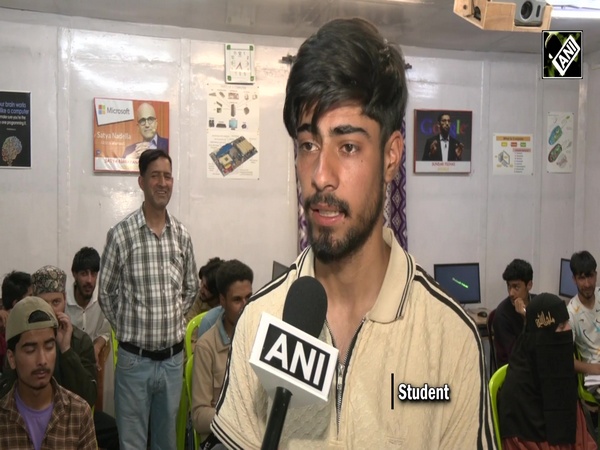Special Campaign 2.0 was successful in realizing PM Modi's vision for institutionalizing Swachhata, minimizing pendency: Jitendra Singh
Nov 04, 2022

New Delhi [India], November 4 : Union Minister for Personnel, Public Grievances and Pensions Jitendra Singh said that Special Campaign 2.0 was highly successful in realizing Prime Minister Narendra Modi's vision for institutionalizing Swachhata and Minimizing Pendency.
Briefing the media persons about the outcomes and best practices of the month-long Nationwide Special Campaign 2.0 conducted from October 2 to October 31, 2022, Singh said over Rs 364 crores earned from scrap disposal and over 88.05 lakh sq feet of space freed during the campaign.
The Minister informed that Special Campaign 2.0 was 15 times larger than Special Campaign of 2021 in terms of cleanliness campaign sites. He said, Swachhata Campaign was successfully conducted in 99,633 campaign sites, 54.5 lakh files reviewed, 436,855 Public Grievances Redressed, 8734 MP's references replied and 883 Rules eased in the period October 2-25, 2022.
Singh said that Special Campaign was a perfect example of the 'Whole of Government Approach' and even went beyond that as Overseas Missions also took an active part in the month-long campaign.
He said Departments/ Ministries have given special attention to attached/ subordinate/ filed offices including in the remotest parts of India in month-long campaign period from October 2-31, 2022.
According to the Ministry of Personnel, Public Grievances and Pensions, Special Campaign 2.0 was undertaken from October 2-31, 2022 in pursuance of the decision taken by the Council of Ministers that under Special Campaign 2.0, for cleanliness in offices and for disposal of pending references, Ministries/ Departments to give special attention to attached/ subordinate/ field offices, including in the remotest parts of the country.
In the period October 2-31, 2022, the Special Campaign 2.0 has been implemented in remote outstation offices, foreign missions and posts, attached and subordinate offices. The campaign sites included central government offices from Drass to Kanya Kumari and from Bikaner to Itanagar. Further, all Indian Missions abroad implemented the Special Campaign 2.0.
The Special Campaign 2.0, was holistic in size and scale, and witnessed widespread participation from thousands of officials and citizens who came together to create a movement for Swachhata in Government Offices. Cabinet Ministers and Ministers of State participated in the Special Campaign 2.0 providing leadership and guidance in implementation.
The Department of Posts has conducted the cleanliness campaign in 24,000 Post Offices, the Ministry of Railways has conducted in 9374 Railway Stations, the Department of Defence in 5,922 campaign sites and the Ministry of Home Affairs in 11,559 campaign sites. 16 Ministries/ Departments have conducted the Special Campaign 2.0 in over 1000 campaign sites, 31 Ministries/ Departments had conducted in Special Campaign 2.0 in over 100 campaign sites.
Over 300 best practices in conducting the Special Campaign 2.0 as a citizen-centric movement, to bring citizens and government closer and create an aesthetically pleasing work environment were reported by Ministries/ Departments.
Amongst the best practices that emerged in Special Campaign 2.0 included two initiatives of the Ministry of Railways in Bengaluru Railway Station to create a Plastic Rakshasa sculpture from discarded plastic bottles. A new rail coach restaurant has been started at Guntur Railway Station.
The initiative of the Department of Posts in opening a Parcel cafe Kolkata GPO by refurbishing old furniture for enhancing customer experience was also part of the campaign.
The initiative of Ministry of Tribal Affairs in creating a Jarwa tribe hut in Port Blair which shows their way of eco-friendly cultural values towards cleanliness was also mentioned among the best practices.
The other initiatives mentioned in the statemenrt include the Department of Agriculture Research and Education in creating complete parthenium-free and plastic-free farms by KVK CRIDA, Telangana. Further, the initiative of Department of Scientific and Industrial Research in geo-tagging of files and Border Roads Organization in building roads using plastic waste also got the mention.


















